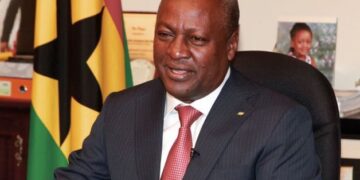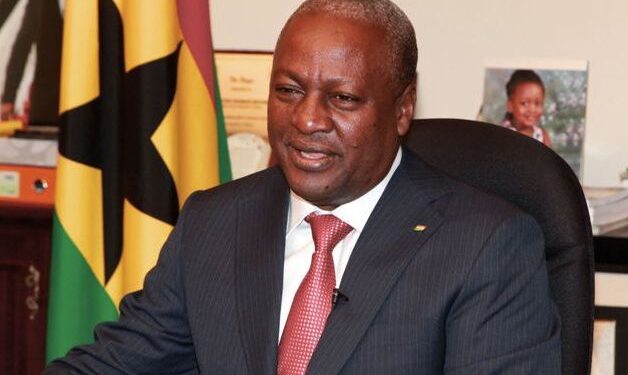By Ebi Kesiena
Former Ghanaian President John Mahama has called for the creation of a Pan-African legal framework that aligns with the continent’s values and realities, emphasizing its role in addressing Africa’s pressing challenges.
Speaking at the Nigeria Bar Association Annual General Conference in Lagos, Mahama stressed the importance of adapting legal education and practice to meet the demands of an integrated African market.
He noted that the was a need for expertise in international trade law, cross-border disputes, and comparative African law to better serve the continent.
In his address titled “The Future of Africa Amid Rising Security, Economic and Political Challenges,” Mahama emphasized the critical role that lawyers must play in tackling Africa’s structural issues.
He urged legal professionals not only to advocate for change but also to actively shape the legal frameworks that will support economic diversification and strengthen the continent’s economies.
Mahama also spoke on the significance of the protocol on the free movement of persons, describing it as more than just an economic necessity but a realization of the Pan-African dream. He challenged legal professionals to advocate for and implement legal mechanisms that facilitate the free movement of people and goods across African borders while addressing legitimate security concerns.
“You must work tirelessly to harmonize our immigration laws, recognize professional qualifications across our member states, and establish robust systems for the mutual recognition of judgments and arbitral awards,” Mahama urged.
He also highlighted the opportunities and responsibilities presented by the African Continental Free Trade Area (AfCFTA), calling on lawyers to proactively adapt their legal education and practice to support the needs of an integrated African market.
Addressing the recent political insurrections and coups in Africa, particularly in the Sahel region, Mahama pointed out that these events reflect deep-rooted issues of injustice, alienation, and marginalization. He noted that state fragility and insecurity have led to military takeovers, disrupting regional stability and exposing the limitations of current diplomatic and interventionist strategies.
Furthermore, Mahama posed critical questions about Africa’s future, urging legal professionals to consider the structural challenges that undermine African economies.
He pointed out that recent global events have not only disrupted African economies but also exposed long-standing vulnerabilities, particularly the continent’s heavy reliance on exporting commodities and importing essential goods.




































